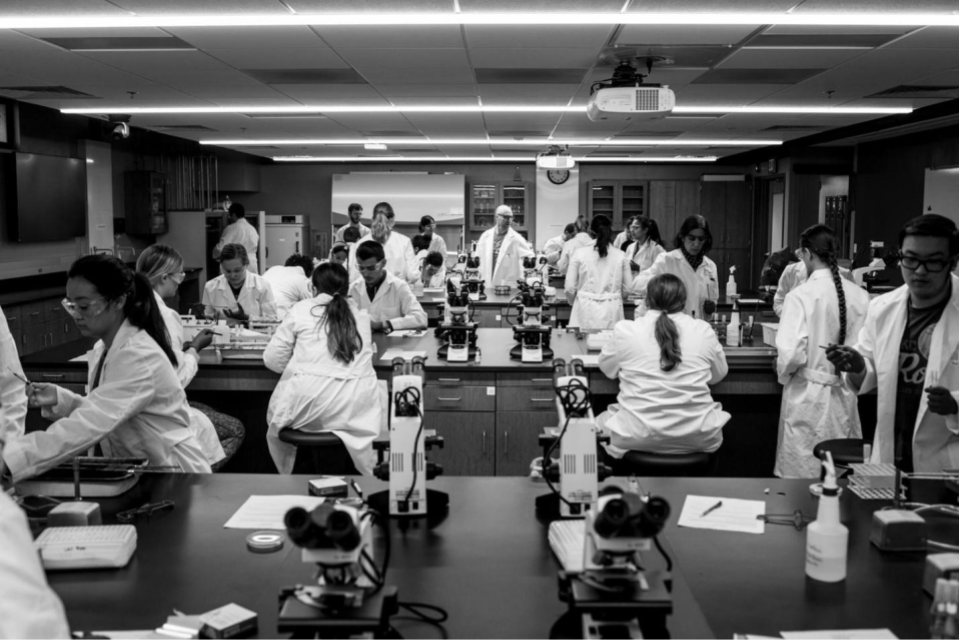Members of the chemistry department at UMKC are meeting the climate crisis head on with novel ideas to help reduce carbon emissions, and decrease air and water temperatures.
In a First Semester Experience event earlier this month, professors and faculty from the department discussed the severity of the climate crisis as well as the steps they’re taking to fight it.
“The increase of surface temperature is synced to the increase of carbon dioxide concentration,” said Fengpeng Sun, a UMKC professor of geology and environmental science. “This is especially true for the recent decades.”
Sun is also a climatologist and 2019-2020 Haskell Research Award winner for UMKC. He reaffirmed the importance of understanding human involvement in creating the climate crisis.
“It is scientifically grounded that human-induced greenhouse gas emissions are responsible for the increase of global air temperature,” Sun said.
The forum’s focus was on combating climate change in three distinct areas: creating energy from non-fossil fuels, converting harmful greenhouse gasses and increasing environmental friendly and sustainable chemistry.
Carbon dioxide emissions, which are linked to the burning of fossil fuels such as coal, oil and natural gas, have produced dramatic climate events such as the 20-year Colorado River drought, the wildfires of California and Greece, and the astronomical rise in tropical system propensity in the North Atlantic Basin.
In the face of these challenges, chemists and their research teams at UMKC’s School of Biological Sciences are using innovative chemistry methods to find grassroots solutions and inspire greener approaches for policy makers.
The scientists’ ultimate goals for the event and their ongoing research are to understand all major issues resulting from climate change, to determine origins of climate change and to pinpoint what chemists can do to provide possible solutions.
The first presenter was Curators Distinguished Professor of Chemistry Dr. Zhonghua “Josh” Peng. Peng and his research partner Dr. Kathleen Kilway are trying to alleviate defects in current technology, such as perovskite solar cells (PSCs), to fight climate change.
“Chemists at UMKC have been developing inexpensive materials that can not only improve PSCs’ efficiency, but also drastically enhance its long-term stability,” Peng said.
UMKC chemistry professor Dr. Xiaobo Chen also spoke at the event and discussed his research, which uses solar energy to convert organic materials into reusable energy and converts emissions to accomplish the same.
“We are creating chemistry that can help us to create no-CO2 emission energy sources using natural sunlight, or to convert CO2 to fuels or highly-valued products using electricity or heat produced from sunlight,” Chen said.
Peng and Chen’s goal is to remove pollutants generated from fossil-based energy sources using organic light, or to innovate new processes that use less energy to reduce the CO2 emission from fossil-fuel based energy sources.
Sun, Peng, Chen and other chemistry professors like assistant professor Mohammad Rafiee said they will use their work to continue the fight against climate change both at home and abroad.
lbmcc@umsystem.edu








